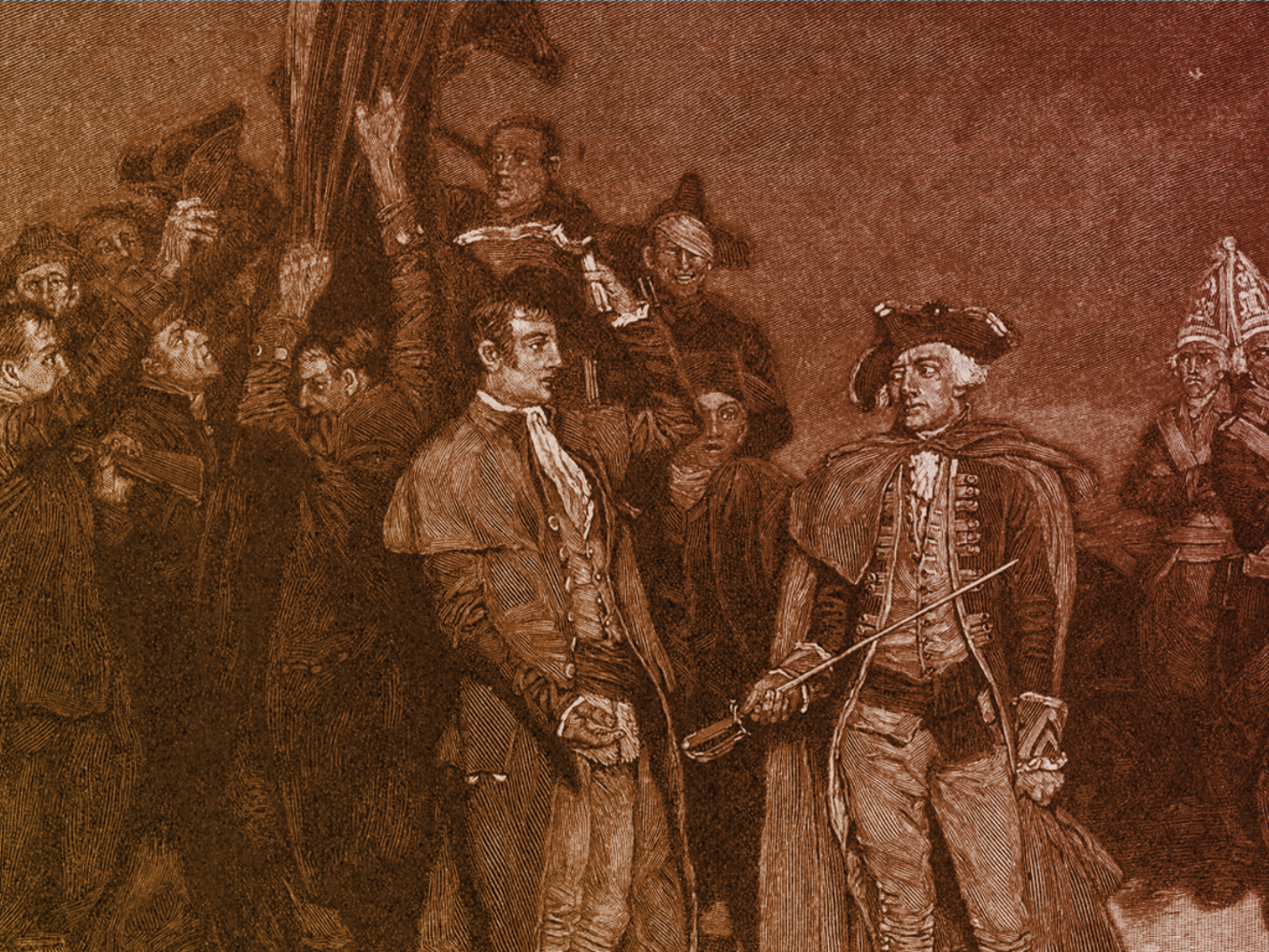
In New Hampshire, they call it “the shot not heard round the world.” On December 14, 1774, local patriots captured Fort McHenry in Portsmouth harbor. It’s probably—definitions and claims vary—the first open act of violent rebellion during the American Revolution.
Patriots had been increasingly worried about control of scarce guns and powder since October when King George forbade their export to America. The September Powder Alarm in Massachusetts, a sort of dry run for Lexington and Concord, saw thousands of militia assemble too late to prevent General Gage from seizing the powder supply in Somerville and two cannons from Cambridge. Since then, Rhode Island patriots had removed gunpowder inland from the fort at Newport Island.
[RELATED: We Can Seize Liberty If Need Be]
Now, New Hampshire patriots worried that the British would take the powder and arms from Fort McHenry. Paul Revere, ever-riding, came to Portsmouth to sound the alarm. On December 14, several hundred New Hampshiremen under John Langdon stormed the Fort.
It was a less bloody affair than the storming of the Bastille, much less the bloodshed at Lexington and Concord. Only one provincial officer and five soldiers manned the Fort. But they did not surrender: they fired with cannon and musket shots, and fought hand to hand to defend the fort. Several were wounded in the battle—but none were killed. Too many hundreds broke in at once, and the six defenders were soon subdued, to be released a few hours later. Langdon’s men removed 16 cannons and 100 barrels of gunpowder—and tore down the British flag.
It’s the only Revolutionary battle fought on New Hampshire soil—the British withdrew their forces soon after and never tried to return. New Hampshiremen fought elsewhere, notably at the Battle of Bennington, but it’s good to know that some part of the Revolution also played out in the Granite State.
[RELATED: The Caliban of Liberty]
No one died—but Americans rushed the blaze of guns and cannon. And once loyal subjects of the British crown tore down the flag, there was no going back.
Who knows what acts of bravery will have been our turning points? Canadians had their trucker convoy—no deaths, but defiance. January 6 wasn’t especially bloody either, although people died.
Let us hope we will not need more acts of defiance. We must be ready to act when Paul Revere comes to town—but for now, there is a fair wind of liberty, so we need not rush to our guns.
Follow David Randall on X
Art by Beck & Stone
The thing to remember about Portsmouth, NH is that the other side of the river is Kittery, ME — which back then was Massachusetts. Furthermore, New Hampshire only has 13 miles of shorefront — it was an overlapping land grant put into the middle of the Massachusetts grant by people in England who had bad maps and didn’t know the geography over here.
So this was still largely Boston — remember that John Adams went through here to practice law in Maine. Largely deeds and estates, but he went up there a few times. He went by horse, most people traveled by boat and my guess is that
The thing to remember about New Hampshire is Governor Wentworth (a relative of mine) — he was the exact opposite of Governor Hutchenson. For example, the British Navy had claimed all the tall trees for masts, except that many of them were in places where there was no way they could be removed intact — it would be difficult to do so today with modern hydraulics because of ledges and such.
So he simply said that those which the Navy could never get out of the woods were “damaged in a storm” and hence they could be cut down and used for lumber. Practical stuff like that, and had it not been for Massachusetts on both sides, NH likely would have remained loyal. Actually, had that idiot not firebombed Falmouth (Portland, not the Falmouth of today), Maine would have remained loyal too. John Adams wrote to Abby that Maine likely would because grain (particularly wheat and rye) simply did not grow on the foggy coastline but trees did and they would sail firewood down to Boston and trade for grain and flour. Trade with the British, who paid cash.
Yes, there were exceptions, O’Brien in Machias, ME, the Green Mountain Boys in VT, but most of Northern New England remained loyal.
The fort at Castine, mouth of the Penobscot River, was built by AMERICANS and not the British. As an aside, Benedict Arnold burned his ships in what is now Downtown Bangor (ME) — they found remains of one ship when the put in the second bridge across the Penobscot in the 1950s, and another when they put the Interstate bridge in the 1980s — I’ve seen those cannons.
I hate to keep pouring cold water on patriotism, but facts matter and it was BOSTON who wanted to revolt. The economics there were different from Northern Coastal New England, although remember that New Hampshire went up the rivers — Concord is on the Merrimack River.